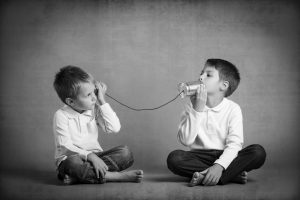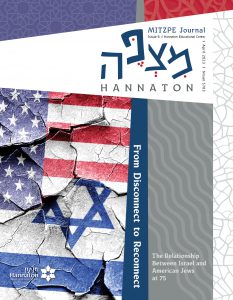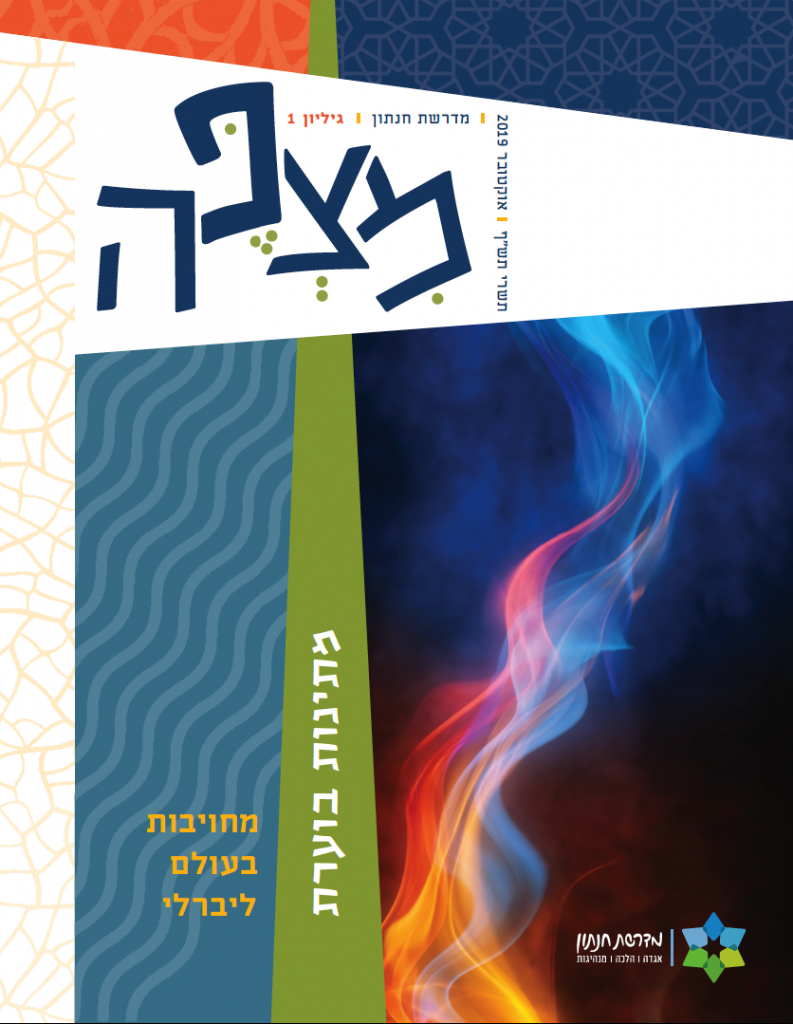Two thoughts about the complex relationship between Israel and the Diaspora came to mind as I sat in shul this Rosh Hashana.
The first was that the State of Israel was mentioned only twice in the course of the very long service: in the twin prayers for the welfare of Israeli and American soldiers, both recited in my congregation in Hebrew; and in the (Hebrew) “Prayer for the State of Israel” that, as always, was recited along with the (English) “Prayer for Our Country.” References to the Land of Israel and/or the holy city of Jerusalem were frequent. But inside the time and space of the Rosh Hashana tefillah, it was as if the modern State of Israel did not exist. This is not unusual on my side of the Israel-American Diaspora divide.
My second reflection – perhaps a partial explanation for the first – was that, outside the time and space of that tefillah, Judaism did not exist. Traffic flowed as it always does on the streets of New York. Mail got delivered as it does every day except on Sunday. Lawns were noisily mowed. Busses ran according to weekday schedules. It would be different in the State of Israel, I knew, and not only because the country observes a holiday schedule on Rosh Hashana. Israelis, whether “religious” or “secular,” have a strong sense that they are playing a part in the making of Jewish history. Their personal fate is bound tightly to the Jewish story; the future of their family cannot be separated from that of their people. When sirens sound in Sderot or Tel Aviv, American Jews who care about Israel are concerned, but we do not run for cover. The Hebrew prayers that we American Jews say in synagogue – for the most part, the same prayers said in Israeli synagogues – read differently here because Hebrew is neither the language we speak every day nor the language in which we dream. The relation between those who pray and their prayers is altered. So is the relation between American Jews and Judaism. We have to reach out for connection to an identity that in Israel comes with the territory. Those of us who work hard at sustaining a close connection to Judaism and to Israel are defying the odds that come with being a relatively small minority within the very small minority of Americans who are Jews.
The “disconnect” between the majority of American Jews and the majority of Israelis – documented in numerous surveys – is therefore not surprising. Each “side” knows so little about the other! Indeed, the great majority of American Jews know little about Judaism, Jewish history, or the contemporary Jewish situation. Many are happy to visit Jewish synagogues and neighborhoods when traveling abroad, and about half, at last count, have visited Israel, but they generally evince no sustained curiosity about the Judaism(s) and the Jewish communities that animated those sites in the past or do so today. Most American Jews do not read or speak Hebrew; nor do they read Hebrew literature in translation, seek out Israeli films or follow Israeli news closely on the web. Israelis who are fluent in English have an advantage in this respect, and those who do not know English can easily access American Jewish culture. The political and societal realities on both “sides” are complex and rapidly changing, making them hard to grasp even for insiders, let alone from afar. It is not surprising that so few make the effort to overcome that distance. And we all have so much else on our minds at the moment: pandemic, climate change, ongoing poverty, refugees in the tens of millions, growing threats to democracy.
What then gives reason for hope of reconnection between Israeli and American Jews. Rising antisemitism, for one thing. Hatred by other groups may being Jews closer to one another. More and more American Jews see antisemitism as a significant threat to their community, and increasing numbers feel personally threatened by it. They understand that violent attacks on American synagogues are related to violent attacks on the “Jewish State.” The open hostility of white nationalists toward Jews is evident for any Jew with eyes to see. I don’t think that we can rely on antisemitism to slow the process of assimilation or return wandering Jews to identification with the Jewish people. Antisemitism may send such Jews in the opposite direction, or give them added reason to keep their heads down when Jews are counted. One cannot know for certain – and I don’t want Jews in any case to choose Judaism because antisemites have singled them out for opprobrium. There are so many other and better reasons for doing so.
Pride, for one. Survey data show that the great majority of Jews in America are proud to be Jews – proud of our history, proud of our people’s contemporary achievements in America as well as in Israel, proud of the values of justice and compassion for which we are known. This is an important basis for efforts to renew connection, and offers hope that American Jews are open to learning more about the people and the tradition with which they are happy to identify. Significant majorities of American Jews also believe that Jews are obligated to remember the Holocaust. This commitment too can serve as the basis for learning the stories of the individuals and communities who fell victim to the Nazi onslaughts – and about the communities that have been rebuilt and are now thriving in America, in Israel, and in the rest of the Jewish world. Some Jews, no doubt, have decided that, in the shadow of the Holocaust, there is no point in being Jewish and certainly none in religious belief or observance. Millions of other Jews, however both in America and in Israel, share commitment to the major tenet of “Jewish civil religion:” am Yisrael chai. The Jewish people must live: in Israel and outside of Israel; making vital contributions to the societies and nations of which we are a part but also remaining distinctive in our history, customs, and values.
In the end, I believe, that shared commitment will prove decisive. We will stand together as Jews because of what we stand for. If we fail to live up to our values – as individuals or as a community – our ability to stand is weakened. The “covenant of fate” will continue to unite Jews so long as we serve the “covenant of destiny” as well. Both covenants will always be understood in more than one way. Those differences will exist in Israel, in America, and between the two. Keeping the covenant means something different when Jews constitute a minority of 2% of the population as opposed to exercising the power of a governing majority, backed by armed forces and foreign allies, which is responsible legally as well as morally for fellow-citizens and neighbors who are not Jews.
So little is certain in our world in 2023! The COVID pandemic continues to shape economies and claim lives. Catastrophic effects from climate change seem imminent. But I am certain that Jews will not agree on the meaning of Jewishness any time soon – and that this variety, which has strengthened our people over the centuries as well as weakened us, will continue to bring us together as well as pull us apart. I was pleased that former Prime Minister Yair Lapid, in his Rosh Hashana greeting last year, called upon Jews around the world to “remember that we are one family” and asked that, as part of that commitment, we “focus on what unites us, and know how to talk about the things we disagree upon. That’s what a family does.”
Amen. One of the great pleasures for me when I spend time in Israel is the ability to speak freely and frankly about controversial issues of the day without fear that criticism of government policy or the actions of other Jews will play into the hands of Israel’s enemies or antisemites. Some vocal supporters of Israel contend that all criticism of the State should be forbidden for that reason, no matter how responsibly it is offered. They have largely succeeded in shutting down honest debate in their communities. Synagogues and other organizations fear that, in the current polarized political climate, any disagreement about Israel or other vital Jewish matters will lead to irreparable divisions and threaten the very survival of the group. The things that matter most are often those that are least talked about. I fear that silence hurts us far more than disagreement. We need to speak and listen more. “That’s what a family does.”
I hope that Hannaton will encourage a variety of Jewish voices, both American and Israeli, who will speak honestly about what unites and divides us. We need to renew a way of talking to one another that is strong, loving, judicious, faithful, and responsible. Let’s resolve that in 5783 our teshuva will include renewed turning toward one another at the same time as we face outward courageously to the world.





